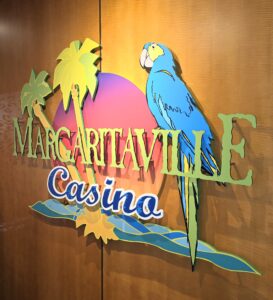
“Recreational Gambling”
Mark DeVol and Dr. Mike, the excellent hosts of the highly regarded, You Can Bet on That podcast, refer to themselves as “recreational gamblers.” Prior to them coining the term, I never heard casino gamblers referred to, with those words. I guess the term can have different definitions to different people. To me, a recreational gambler is someone that considers gambling an avocation or hobby; an enjoyable way to spend free time. The recreational gambler has a certain amount of money budgeted for entertainment that they chose to risk by taking on lady luck. As a recreational gambler, they hope to win but they accept that they will likely “lose” their money in any particular gambling session. They understand that at the end of the day, GAMBLING IS JUST A FUN WAY TO SPEND MONEY. Unlike a shot-taker or an addicted gambler, the recreational gambler knows that a visit to the casino is not expected to be income supplementation or a way to get rich quick.
The recreational gambler knows his or her way around the casino. They are knowledgeable about the rules of the games. They know which games have the highest house edge and which bets are strictly long shot sucker bets. If they want to stay and play, they have to play games that give them a chance to win now and again or at least lose slowly. Games like the “The Big Wheel” are not even considered.
The recreational gambler plays for the fun that comes with the thrill and adrenalin rush of risking just enough money to keep them interested in a game but not betting so much that a loss will have a deleterious effect on their lifestyle. Naturally, the required wager amount varies greatly from person to person.
“401-G”
Smart recreational gamblers keep their “real world” money segregated from their “fun money.” A good way to do this is to utilize what is known, euphemistically, as a “401-G” account. The “G” stands for gambling. Satirically, borrowing its name from actual financial products like the 403-B or the 401-K, the 401-G is a great, albeit fictitious, financial product. It is designed as a firewall to prevent financial disaster. It can be kept in a special bank account or for some, perhaps, even a cigar or shoe box. An interesting way to secure the money is to use one of the internet based banks that offer free checking accounts for holding the funds.
401-G money is designated for casino trips only. Some days the 401-G will grow, on others it will dwindle. The #1 rule of the 401-G is that, it is the ONLY source for funding gambling. Invading other sources for gambling funds, or worse yet, obtaining high interest credit card cash advances, is a rocky road filled with pitfalls that scores of undisciplined gamblers have fallen victim to.
As a side note, there is a somewhat more nefarious version of the 401-G account—the infamous Off-Shore 401-G. This is a secret gambling account that a spouse or partner is unaware of. For domestic tranquility, I don’t recommend this because its discovery can be disastrous.
The recreational gambler also knows how to most efficiently use the perks that the casino rewards them with for risking their money. This could be a complimentary (comp) buffet, a free hotel room, show tickets, airline ticket reimbursement or even an ocean cruise with an affiliated partner of the casino. Spending money in a casino resort is different than spending money on other vacations. Does anyone know of a case of Disney providing a visitor with anything free? I don’t and a couple of days in Disney World can easily cost much more than two days in a casino resort. At least with the casino vacation there is an opportunity to come home with more money than you went with; that is not happening at Disney World.
Related: Generating Casino Offers
Learn the Casino Comp System
Learning the casino comp (complementary) system can pay dividends to the savvy recreational gambler. For comp purposes, casinos credit different games in different manners. A $25 Three Card Poker player may get more credit for comps than a $25 blackjack player. In the casino world, the slot machine player is king. The machines make plenty of money for the house. They have a very low operating cost as there is a minimal labor expense. The high return on investment for the casino results in a bounty of casino comp offers for the slot devotee.
The method of quantifying a player’s worth to the casino varies from property to property. Casino corporations value the player’s outlays differently. In “Casino A,” they may give a player credit for all monies expended on the property, such as gambling and on property spending, such as restaurants, the spa etc., while “Casino B” may not figure the $800 spent in the steakhouse into the equation.
So if you have the financial resources, knowledge of the casino games and most importantly, the discipline, being a recreational gambler can be a lot of fun. One caveat: Gamblers must also always be vigilant to ensure that the hobby does not become an obsession. As I mentioned earlier, “GAMBLING IS JUST A FUN WAY TO SPEND MONEY.”
The Inveterate Gambler has had a keen interest in casino games and the casino industry for more decades that he likes to remember. Craps, Blackjack and some Pai Gow Poker are his games of choice. He also enjoys playing in the home poker game were wild cards and luck overcome skill. He has no interest in slots and if there were no table games he would never set foot inside a casino. He is an expert on the Atlantic City scene. Like Batman, Superman, The Green Hornet, and a host of his other comic book heroes, The Inveterate Gambler must keep his true identity secret.












